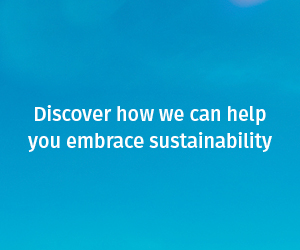NSW trumps Queensland on EV policy
.jpg?h=667&iar=0&w=1000&rev=44dc4df6a43b4e6f9954b20c0f748ab7&hash=85A4EC75B7E08378ED9B9A97B86BACCB)
It’s not enough that New South Wales won the rugby league State of Origin series earlier this year, but now the Electric Vehicle Council has ranked the southerners ahead of us in its annual State of Electric Vehicles report.
Queensland scored a solid six out of 10 on the council’s EV Policy Scorecard, equal with South Australia, Victoria, and Western Australia, but behind the Northern Territory and Tasmania (seven), the ACT (eight), and front-runner New South Wales which topped the class on nine.
The EV Council described the NSW Government’s position as “Australia’s best electric vehicle policy to date”.
The report praised New South Wales for its introduction of a “whole-of-government electric vehicle strategy, backed by $500 million in funded actions”, designed to accelerate the uptake of zero-emissions vehicles.
The removal of stamp duty and $3000 rebates for electric vehicles under a price cap, $171 million for co-funding infrastructure, and 100% bus and government fleet targets, were cited as “real, meaningful actions that give confidence to consumers and industry, spurring greater investment and outcomes for the state”.
The report said these initiatives were matched by a commitment to delay road user charges until the market had matured, either by 2027 or until electric vehicles accounted for 30% of sales, ultimately replacing upfront stamp duty charges.
“The NSW Government incentive program is significant and comparable with leading jurisdictions overseas, and we are optimistic about the effect it will have on electric vehicle availability and sales,” the council’s CEO Behyad Jafari said.
When it came to scoring Queensland, the report said the Sunshine State had leveraged its early leadership in electric vehicle infrastructure by continuing to expand its Electric Vehicle Super-Highway.
“The state is currently consulting to update its electric vehicle strategy, having been the first state in Australia to develop one in 2017,” the report said.
“To increase its grade, Queensland should increase the scope of its electric vehicle strategy to include financial incentives for the purchase of EVs in line with other states."
On 17 June, the State Government announced the development of a new Queensland Zero-Emission Vehicle (ZEV) Strategy.
The new ZEV Strategy will supersede The Future is Electric, Queensland's first electric vehicle strategy, a government statement said.
A three-week public online survey and written submission process was used to help shape the strategy, along with input from local government and industry workshops, with the State Government now considering all stakeholder feedback.
Despite this, Queensland still comfortably outperformed the Federal Government, which scored three out of 10, ranking it lower than all states and territories for the second year in a row.
“There remains a lack of leadership at a federal level and the Federal Government has failed to deliver on its promise of a national electric vehicle strategy,” the report said.
Policy action by governments is cited as an important factor in providing confidence to investors, industry, and consumers to support the transition towards e-mobility.
The report listed the primary policy drivers to accelerate EV uptake as: financial incentives to reduce the price of purchasing an electric vehicle, regulatory changes, and investment in charging infrastructure.
“The delay of a national electric vehicle policy has caused investment and uptake in Australian to lag comparable markets,” the report said.
“In recent years, state governments have been stepping in to fill this policy vacuum, sometimes with mixed results.”
Despite its own statistics revealing an increase in electric vehicle sales, improvements in consumer sentiment, and the rollout of more public charging infrastructure over the past 12 months, the Electric Vehicle Council said Australia continued to lag behind comparable countries when it came to electric vehicle market share, model availability, consumer awareness, industry development and government support.
“Australia still has serious challenges when it comes to electric vehicle market share, policies, and consumer choice,” Mr Jafari said.
“We need to see more electric vehicle models in Australia, particularly at lower price points.
“To get more models, we need the right policy settings so we can compete with other countries to attract the globally limited electric vehicle supply to Australia.”
Related topics
Things to note
The information in this article has been prepared for general information purposes only and is not intended as legal advice or specific advice to any particular person. Any advice contained in the document is general advice, not intended as legal advice or professional advice and does not take into account any person’s particular circumstances. Before acting on anything based on this advice you should consider its appropriateness to you, having regard to your objectives and needs.
Insurance Products (excluding Travel Insurance) are issued by RACQ Insurance Limited ABN 50 009 704 152 (RACQI) and arranged by RACQ Distribution Services Pty Ltd (RDS) ABN 35 116 361 650, AFSL 567130 and RDS' authorised representatives (including RACQ Operations Pty Ltd ABN 80 009 663 414, AR No. 234978 (RACQO)). Conditions, limits and exclusions apply.
Any advice provided by RDS and RACQO is general advice only and does not take into account your personal objectives, financial situation or needs and you will need to consider whether the advice is appropriate for you. Read the Product Disclosure Statement (PDS) before making a purchase decision on the product. You can also access our Target Market Determinations on this website.
RDS receives a commission from RACQI for the policies it arranges. RACQO receives fees paid for services it provides to RDS. Further details about remuneration are available on request prior to purchasing.
Banking and loan products issued by Members Banking Group Limited ABN 83 087 651 054 AFSL/Australian credit licence 241195 trading as RACQ Bank. Terms, conditions, fees, charges and lending policies apply. This is general advice only and may not be right for you. This information does not take your personal objectives, circumstances or needs into account. Read the disclosure documents for your selected product or service, including the Financial Services Guide and the Terms and Conditions, and consider if appropriate for you before deciding.
Except for RACQ Bank, any RACQ entity referred to on this page is not an authorised deposit-taking institution for the purposes of the Banking Act 1959 (Cth). That entity’s obligations do not represent deposits or other liabilities of RACQ Bank. RACQ Bank does not guarantee or otherwise provide assurance in respect of the obligations of that entity, unless noted otherwise.
RACQ Bank subscribes to the Customer Owned Banking Code of Practice which establishes higher standards than the law requires. The Code reflects modern consumer expectations and developments in approaches to issues such as consumer vulnerability, guarantors, and supporting customers through financial hardship. Please read our Customer Owned Banking Code of Practice page for more information.
RACQ Operations Pty Ltd (ABN 80 009 663 414 AR 000234978) and Members Travel Group Pty Ltd (ABN 45 144 538 803 AR 000432492) are acting as an Authorised Representative of the issuer of the insurance, Tokio Marine & Nichido Fire Insurance Co., Ltd. (ABN 80 000 438 291 AFSL 246 548). Any advice set out above is general in nature only, and does not take into account your objectives, financial situation or needs. Before purchasing any travel products, please consider the RACQ Travel Insurance Product Disclosure Statement (PDS) and the Target Market Determinations (TMDs) that apply to these products. Whilst the PDS outlines the Terms and Conditions of these products, the TMDs outline the intended class of customers that comprise the target market for these travel products. This will allow you to consider which products best suit your objectives, financial situation and needs and consider the products appropriateness to your personal circumstances. TMDs also outline matters involving the distribution and the review of these products. The PDS, Supplementary PDS and TMDs for each travel product can be found here.

